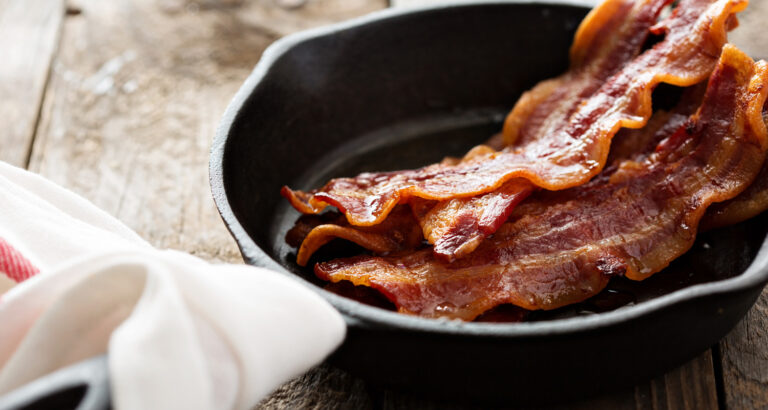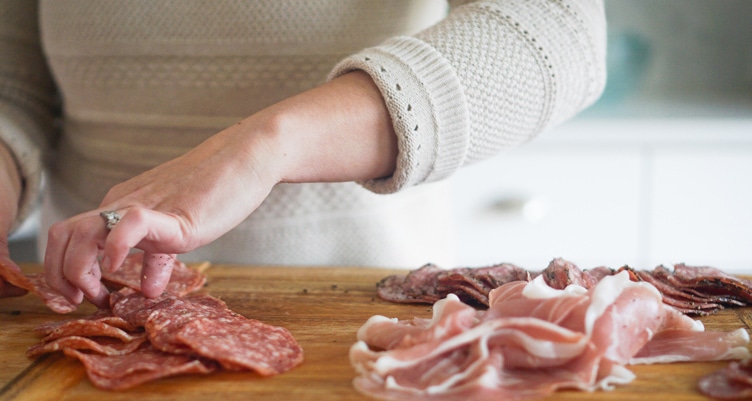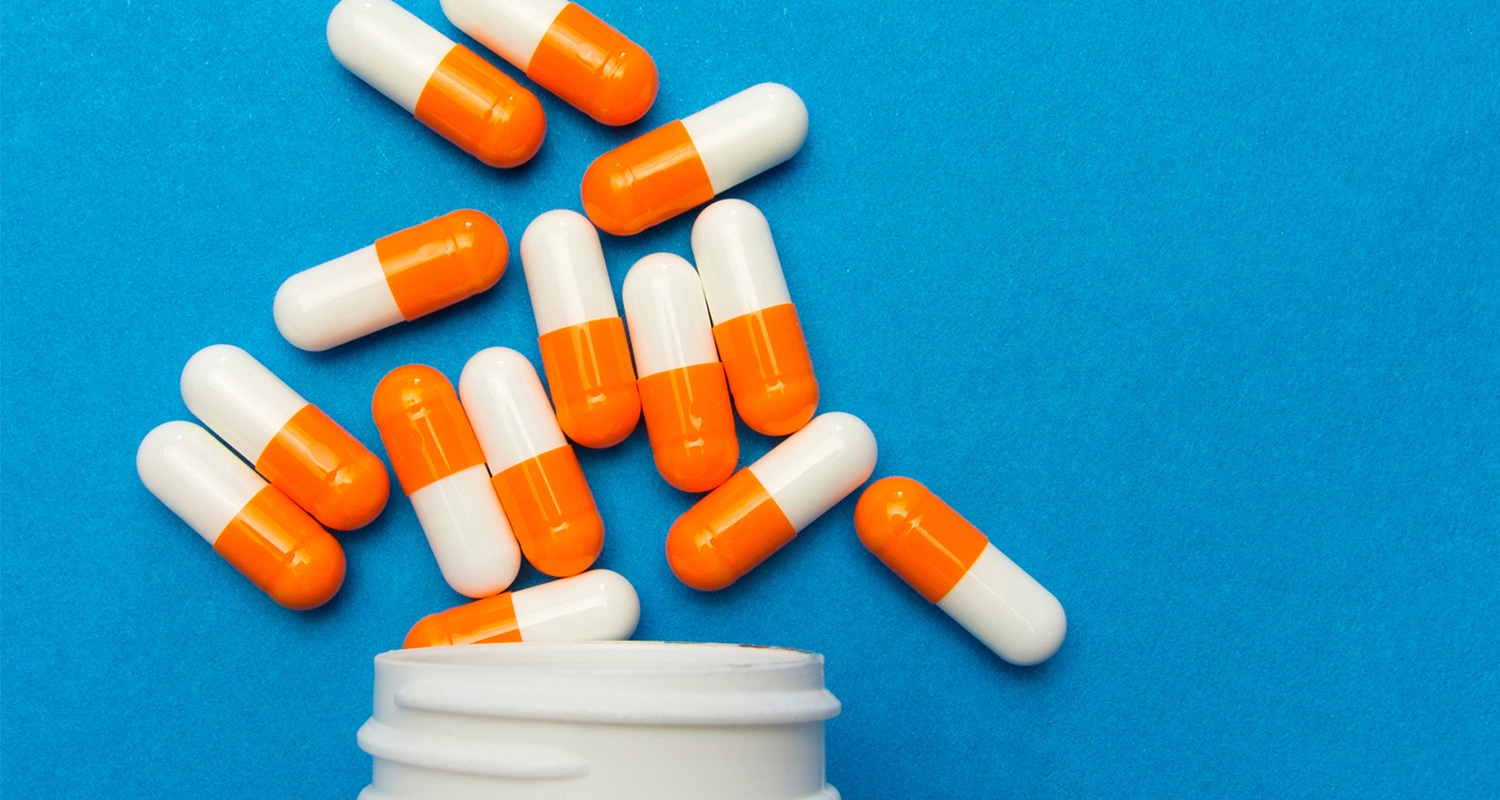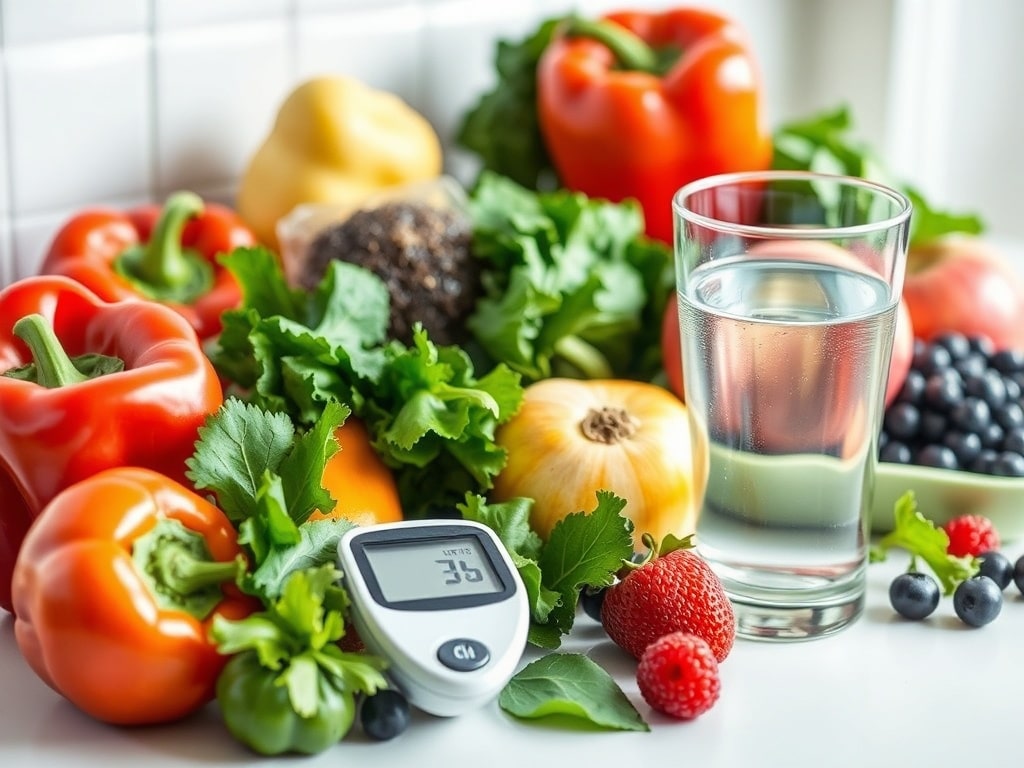
[tldr]
- With sources like the World Health Organization drawing a link between nitrates and cancer, bacon manufacturers offer nitrate-free varieties that cure meats with celery powder.
- Nitrate-free bacon may look more wholesome, but it can still produce carcinogenic compounds in your body.
- With the right approach, you can keep bacon on the table: Cure it yourself or get high-quality pastured varieties from your local farmer, and cook it at a low temperature.
[/tldr]
If there’s one thing keto, paleo, and Bulletproof Diet fans agree on, it’s bacon. Despite its mouthwatering flavor, though, not all bacon is created equal — even bacon that you think might be better for you than your regular pack of store-bought slices.
You may have tried nitrate-free bacon, thinking that you’re doing your health a favor. But what does nitrate-free bacon really mean, and is it actually better for you? Read on to learn why nitrate-free bacon might not live up to the hype, and what you should be looking for instead when choosing this cut of pork.
Click here to download the Bulletproof Diet Roadmap and learn the best sources of clean protein
What are nitrates?
The belief that bacon is bad for you has real science behind it. Instead of worrying about saturated fat and sodium, focus has shifted to the link between processed meats and cancer — all thanks to nitrates and nitrites.
Sodium nitrate and sodium nitrite are common additives used to preserve meat. Sodium nitrate is sold as a salt for curing meats like bacon and jerky, but you can also find naturally occurring in vegetables like celery. Sodium nitrite is also sold as a salt, and acts as an antioxidant that prevents cured meats from browning. Nitrates and nitrites give processed meats their iconic pink color and sharp flavor while preventing harmful bacterial growth during the curing process.
Your body doesn’t do much with nitrates. After consuming them, bacteria in your saliva or enzymes in your body will convert nitrates into nitrites. Depending on the food you ate and how it was cooked, these nitrites can form helpful compounds like nitric oxide (NO) or cancer-causing compounds called nitrosamines.
The scare behind nitrates in bacon comes from sources like the World Health Organization (WHO). New findings show that processed meats like bacon, hot dogs, and salami increase cancer risk (sorry, dirty keto lovers). The leading theory is that added nitrates in meat convert to nitrites after bonding with amines, a component of the meat’s amino acids. These nitrites then produce those harmful nitrosamines in your body.
Is nitrate-free bacon better for you?
With all this concern over nitrates, bacon manufacturers responded with “all-natural” varieties that contain no added nitrates or nitrites. Instead, they use curing agents like celery powder to achieve the same effect. But here’s the thing: Celery powder is naturally high in nitrates, so labeling the bacon as “uncured” or with “no nitrates or nitrites added” is a little misleading.
The reason the WHO hasn’t called them out is because nitrate-rich vegetables like celery and radishes put up natural barriers to keep nitrosamines from forming. They contain antioxidants like vitamin C that prevent nitrosamine formation. The problem with celery powder is that it concentrates the nitrites and removes the antioxidants, so you don’t get the same benefits you would from eating a fresh stick of celery. In fact, lab tests show that using celery powder on bacon creates more nitrites in the meat than curing with sodium nitrite itself — making uncured bacon a not-so-clean option after all.
Nitrate-free bacon is just as dangerous as conventional bacon. Both types of bacon have high protein content, so both contain amines that can become nitrosamines in your body. Bacon from any source tends to get cooked at very high temperatures, too — a method that raises nitrosamine levels in your meat. (It’s also a reason why high-heat cooking is not recommended on the Bulletproof Diet.)
Conventional bacon, nitrate-free or not, creates the perfect conditions for carcinogenic compounds to form. Since there’s not much you can do about nitrates in your bacon, focus instead on where your meat comes from and how you cook it.
Other problems with bacon (and how you eat it)
Nitrates aren’t the only concern when it comes to bacon. Other things to watch out for include:
- What your pig ate matters. Problem is, most of them eat garbage. Since conventional hogs eat moldy grains contaminated with a mycotoxin called ochratoxin A, the quality of your bacon suffers.[ref url=“https://journals.sagepub.com/doi/abs/10.1177/030098587901600410”][ref url=“https://www.ncbi.nlm.nih.gov/pubmed/23984977”]
- Smoked meats have harmful compounds, too. Smoking increases harmful chemicals known as PAH (polycyclic aromatic hydrocarbons) and HCA (heterocyclic amines), which are linked to DNA damage and cancer.
- Too much bacon makes you feel foggy. Even pastured pork tends to be higher in histamine and omega-6 fats, which is why the Bulletproof Diet ranks it below other grass-fed meats. Bacon is better in moderation.
- Other additives slow your performance. Sugar, MSG, and elusive “natural flavors” will wear you down, too.
No matter how you munch it, nitrate-free bacon still contains ingredients that can harm you. Don’t let the evidence scare you away from all bacon, though. With the right approach, you can still keep all its chewy goodness in your diet.
Related: The Best Healthy Sources of Protein
The better way to eat bacon
Source cleaner pork
Life is too short for bad bacon, so get it from a pastured, humanely-raised hog — ideally from a local farmer. To avoid the issues that come with moldy feed during wet winter months, get bacon from hogs slaughtered in the summer.
Take a close look at your bacon, too. Cheap bacon is injected with water and curing agents that make it look watery and cause splatters in your pan. The best bacon contains only protein and fat, and looks dry.
Cure bacon yourself
For a Bulletproof take on nitrate-free bacon, get a pastured pork belly from a local farmer (or a reputable retailer like U.S. Wellness Meats) and follow these guidelines:
- Use a small amount of sodium nitrate and smoked salt to cure the pork. Yes, you’re directly adding nitrates to the meat, but fewer overall than you would find in celery powder.
- In addition to the curing solution and seasonings of your choice, add a small amount of ascorbic acid and vitamin E to the rub. This technique stops nitrosamine formation and helps the nitrites convert to NO.[ref url=“https://www.ncbi.nlm.nih.gov/pubmed/2699323”] Some quality bacon brands use this technique — you’ll see ascorbic acid or ingredients like cherry juice powder on the label.
Cook and eat with care
Don’t burn your bacon to a crisp! Bake or fry at a very low temperature (under 300 degrees) until medium well to avoid creating inflammatory, oxidized fats in your meat.
Take supplements like L-arginine and eat more nitrate-rich veggies like celery with your bacon, too — these will help synthesize NO.












